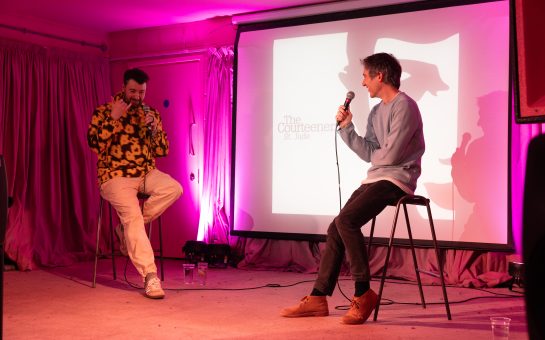Stop-and-search tactics used by police still unfairly target ethnic minorities, according to a leading University of Manchester criminologist.
Dr Juanjo Medina, a senior lecturer at the university, has strongly questioned the police’s strategy in his journal Policing and Society.
Stats from England and Wales showed that black people were nearly seven times more likely to be stop-and-searched than white people, with Asian people twice as likely.
He said: “Stop-and-search and similar police powers have a long controversial history in England and Wales.
“But our findings suggest that even when we control for other socio-demographic factors, self-reported illegal behaviour, area characteristics and degree of street presence, ethnicity still matters.”
Dr Medina, analysing the findings from 2009/2010, has called for police to include the location of stop-and-searches in crime maps.
He also argues there should be better transparency on stop-and-search data, saying that databases on gangs are likely to make the problem worse.
He added: “This would allow for greater democratic accountability and public monitoring of the way these powers are used.
“Intelligence products, such as the databases of gang members and associates that have started to penetrate British policing practice and are subject to little quality of legal control.”
Dr Medina’s comments coincide with an animation recently released called Act of Terror, which depicts the moment a woman was detained by police in 2009.
Gemma Atkinson was handcuffed and threatened with arrest after filming her boyfriend being stop-and-searched by police on the London Underground.
The incident took place a month after the controversial amendment to the Terrorism Act came into force, which made it illegal to photograph a police officer if the images are considered ‘likely to be useful’ to a terrorist.
Atkinson said Act of Terror was made to bring the police to justice and prevent similar incidents from happening again.
In December 2012, Greater Manchester Police launched a new stop-and-search procedure following the appointment of new Police and Crime Commissioner Tony Lloyd.
Mr Lloyd said he hoped the changes would help improve the public’s confidence in the police.
He said: “The use of stop and search by the police has had a damaging impact on communities in the past.
“I’ve listened to people’s concerns and their experiences of stop and search, and it’s clear that this can be a reason when confidence in the police is low, particularly among young people and black and minority ethnic communities.
“I hope these changes and the accompanying police officer training will help to improve the relationship between these groups and the police.”
Greater Manchester Police were unavailable to make a comment regarding Dr Medina’s comments, but said that in December last year they launched a fully electronic stop-and-search recording application.
A spokesperson said: “The process significantly reduces the time taken to conduct a stop-and-search encounter as well as increasing transparency and accessibility of records.
“Persons searched are then issued with a stop and search receipt which, upon request either in person or via the internet, enables the retrieval of a full record of their search. “
The police are now required to maintain close contact with their communities so stop-and-search policing powers can be scrutinised and deemed to be fair or not.
The spokesperson said initial reactions have been ‘very positive and encouraging.’
Above: Short animated documentary Act of Terror by Gemma Atkinson.
Picture courtesy of Greater Manchester Police, via Flickr.
For more on this story and many others, follow Mancunian Matters on Twitter and Facebook.



